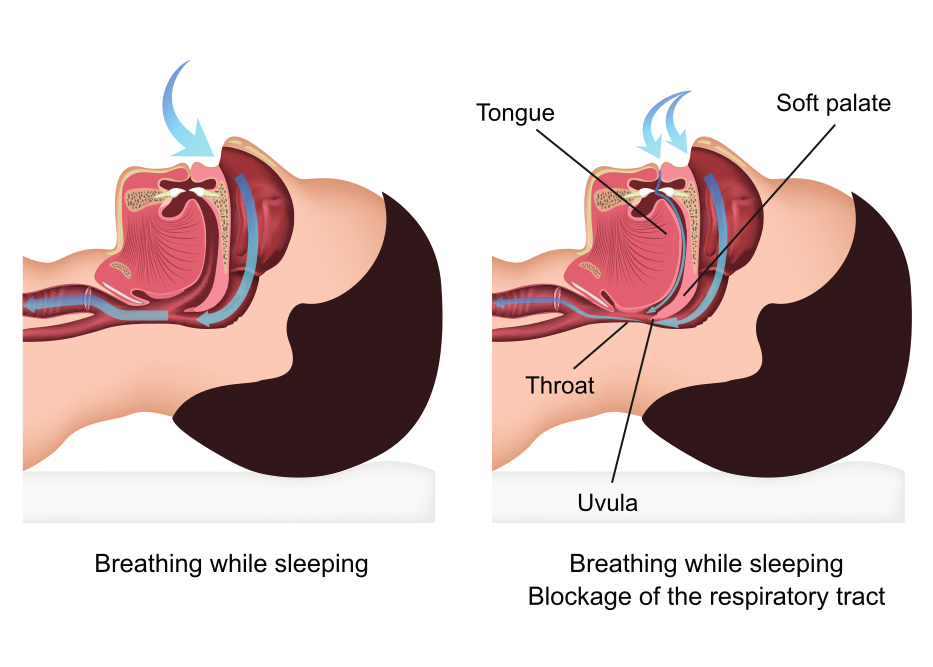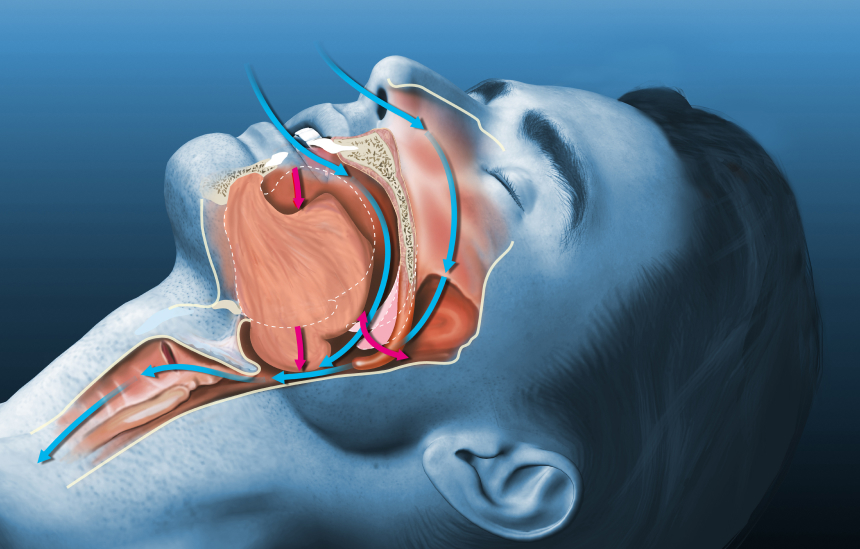
Do you snore when you sleep?
Then you’re not alone – as many as 44% of people snore at night on a regular basis. With typical snoring, breathing continues uninterrupted. But snoring that is unusually loud (heard through closed doors), wakes up your partner, and is accompanied by choking or breaks in your breathing may be a sign of sleep apnea.

What happens when you snore?
Snoring is the result of loose tissues in your mouth, nose, and throat vibrating while you sleep. As you sleep, your tissue in this area relaxes, and can narrow your airway, creating the snoring sound. And for many, this doesn’t cause any long-term issues.
But when snoring is accompanied with noticeable pauses in breathing during sleep, gasping or choking, daytime tiredness, headaches upon waking, and chest pains, you may actually be suffering from sleep apnea.

Sleep Apnea
Sleep apnea is a condition that affects 1 out of every 4 adults in the United States. The most common type of sleep apnea, obstructive sleep apnea (OSA) happens when the tissue around the upper airways narrows and causes a reduction or stoppage of breathing. This disrupted breathing causes an array of health issues, from minor annoyances to lethal consequences.
When your airways are blocked, this places significant pressure on both your airways and your cardiovascular system. This reduction in oxygen leads to increased blood pressure during the night, with effects lingering throughout the day. In fact, untreated OSA increases your risk of a nighttime heart attack by 2.5x!
Treatment Is Easy
Treating sleep apnea can not only change your life, but save your life.
Luckily, there are a number of treatment options to fit every budget and lifestyle. If you want to address the root cause of sleep apnea, your best bet is an oral appliance. A simple mouth guard-like device keeps your tongue from blocking your airways, reducing snoring and pressure on your heart.
Patients find them easy to use, easy to travel with, comfortable, and report instantaneous relief from sleep apnea symptoms. And because sleep health is important to whole body health, these oral appliances are covered by Medicare and most health plans.